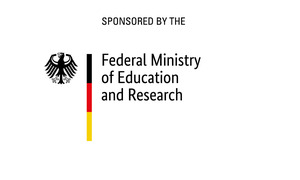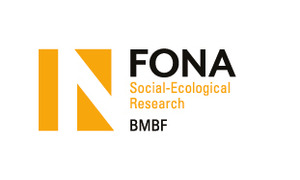Unter nachrichtenlosen Assets werden Vermögenswerte wie Bankkonten oder Wertpapiere verstanden, zu deren BesitzerInnen die Finanzdienstleister den Kontakt verloren haben, etwa weil betroffene Personen verstorben sind und ErbInnen nichts von der Erbschaft wissen. Wenn in einem Zeitraum von 30 Jahren kein Kontakt zu AnspruchstellerInnen dieser Vermögenswerte wiederhergestellt werden kann, buchen Finanzdienstleister die nachrichtenlosen Assets als Gewinne aus. Obwohl schätzungsweise zwei bis neun Milliarden Euro als nachrichtenloses Guthaben in Deutschland existieren, gibt es keine klaren Regelungen bezüglich des Umgangs mit solchen Vermögenswerten. Im internationalen Vergleich ist Deutschland damit der einzige G7-Staat ohne entsprechende gesetzliche Richtlinien. Im Vereinigten Königreich beispielsweise ist es Banken im Rahmen des „Dormant Account Act“ bereits seit Jahren möglich, Gelder aus nachrichtenlosen Assets in einen Fonds zu überweisen, der diese finanziellen Mittel wiederum für gemeinnützige Zwecke einsetzt. Die Region England hat darüber hinaus eine separate Finanzinstitution gegründet, die dem Ökosystem für Sozialunternehmen Kapital zur Verfügung stellt und dadurch einen sozialen Impact generiert. Obwohl die rechtmäßigen BesitzerInnen die Vermögenswerte weiterhin einfordern können, zeigt sich, dass nur ein geringer Anteil der Gelder tatsächlich an AnspruchstellerInnen zurückfließt. Auf diese Weise kann im Vereinigten Königreich eine Vielzahl an sozialen, nachhaltigen und innovativen Projekten gefördert werden.
Das Social Entrepreneurship Netzwerk Deutschland e. V. schlägt vor, die Mittel aus nachrichtenlosen Assets auch in Deutschland dem Gemeinwohl zur Verfügung zu stellen und etwa im Rahmen von Social Entrepreneurship, Projekte zu fördern, die positive soziale, ökologische und ökonomische Ziele verfolgen.
Um einen deutschen „Dormant Account Act“ zu realisieren, erarbeitete der Verein einen Reformvorschlag. Dieser sieht vor, einen Social Impact Fonds zu etablieren, zu dem nachrichtenlose Assets nach Ablauf einer definierten Frist transferiert werden sollen. Über die weitere Verwendung der finanziellen Mittel dieses Fonds bestimmt dann der Gesetzgeber, wobei diese Entscheidung auf Basis von Anlagerichtlinien getroffen werden muss, die sich auf die drei Säulen Nachhaltigkeit, Gemeinnützigkeit und Innovationsförderung stützen. Darüber hinaus soll ein zentrales Melderegister AnspruchstellerInnen dabei helfen, bundesweit nach ihnen zustehenden nachrichtenlosen Assets zu suchen. Da die KfW Bank den staatlichen Auftrag hat, die Bereiche Wohnungswirtschaft, Umweltschutz, Infrastruktur, technischer Fortschritt und Innovation zu fördern, soll der Social Impact Fonds bei der KfW Capital angesiedelt und das Melderegister durch diese administriert werden.
Die in anderen Ländern bereits erfolgreich praktizierte Idee, nachrichtenlose Assets für sozialen Impact einzusetzen, wurde auch hierzulande bisher positiv aufgenommen. Dr. Erwin Stahl, Geschäftsführer von der BonVenture Management GmbH ist von der Initiative überzeugt und begründet deren Zweck: „Wir haben ja nur eine Welt, in der wir alle leben, und deshalb gilt es auch, finanzielle Mittel im positiven Sinn für die Gesellschaft und ein besseres Umfeld einzusetzen.“ Trotz vieler weiterer UnterstützerInnen fehlt es der Idee derzeit noch an öffentlicher Aufmerksamkeit. Der Impact Investing & Sustainable Finance Roundtable lädt daher am 05. März zu einer Veranstaltung ein, bei der es um die Frage nach der Nutzung von nachrichtenlosen Assets für das Gemeinwohl gehen wird. Im Rahmen der Veranstaltung präsentiert das Social Entrepreneurship Netzwerk Deutschland e.V. seine Publikation „Nachrichtenlose Assets“ und die damit in Zusammenhang stehenden Reformvorschläge. Anschließend sollen diese Ideen mit VertreterInnen aus Politik, Finanzwirtschaft und Sozialunternehmertum diskutiert werden.
Die Publikation „Nachrichtenlose Assets“ kann hier abgerufen werden: https://www.send-ev.de/uploads/sif.pdf.
Weitere Informationen zur Veranstaltung Impact Investing & Sustainable Finance Roundtable sind hier zu finden: https://www.eventbrite.de/e/impact-investing-sustainable-finance-roundtable-tickets-93972063973?utm_source=Masterlist&utm_campaign=6b6a3919ac-EMAIL_CAMPAIGN_2018_05_27_05_58_COPY_01&utm_medium=email&utm_term=0_db3ae0b8fc-6b6a3919ac-74931557.
How can unclaimed assets be used for social impact? SEND e.V. presents a reform proposal in Berlin on March 5th 2020
There is a lack of financial support for social enterprises in Germany. Therefore, the question arises of how capital can be mobilized for social and sustainable projects and in doing so, achieve an investment in a future oriented towards the common good. To strengthen the financing of social enterprises, members of the Social Entrepreneurship Netzwerk Deutschland e. V. developed a reform proposal for the use of unclaimed assets for social impact.
Unclaimed assets are financial assets, such as bank accounts or securities, with whose owner the financial service provider has lost contact, for example because the person concerned died and heirs are not aware of their inheritance. If the contact with claimants of these assets can not be reestablished within a period of 30 years, financial service providers will derecognise the unclaimed assets as profits. Even though an estimated amount of two to nine billion euros exists as unclaimed assets in Germany, there are no clear regulations on how to deal with such assets. On an international comparison, Germany is the only G7 state without appropriate legal guidelines. In the UK, for example, the Dormant Account Act allows banks to transfer money from unclaimed assets to a fund, which then uses these funds for non-profit purposes. Beyond that, the region England has established a separate financial institution which provides capital to the social enterprise ecosystem, thereby generating social impact. Although the rightful owners can still claim the assets, it appears that only a small proportion of the money actually returns to claimants. In this way, a wide range of social, sustainable and innovative projects can be supported in the UK.
The Social Entrepreneurship Netzwerk Deutschland e. V. proposes to make the funds from unclaimed assets available to the public good in Germany as well and in this way to support projects that pursue positive social, ecological and economic goals - for example within the framework of social entrepreneurship.
In order to realize a German "Dormant Account Act", the association has drawn up a reform proposal. This proposal envisages the establishment of a Social Impact Fund to which unclaimed assets are to be transferred after a defined period of time. The further use of those financial resources will then be determined by the legislator, whereby this decision must be made on the basis of investment guidelines which focus on sustainability, non-profit status and the promotion of innovation. In addition, a central register will help claimants to search for their unclaimed assets throughout Germany. Since the KfW bank has a state mandate to promote the housing industry, environmental protection, infrastructure, technical progress and innovation, the Social Impact Fund is to be established at KfW Capital, while the central register is to be administered by this bank.
The idea of using unclaimed assets for social impact, which has already been successfully practiced in other countries, has also been positively received in Germany. Dr. Erwin Stahl, Managing Director of BonVenture Management GmbH, is convinced of the initiative and explains its purpose: "After all, we only have one world in which we all live, and therefore it is important to use financial resources in a positive sense for society and a better environment.” Despite many other supporters, the idea still lacks public attention. The Impact Investing & Sustainable Finance Roundtable therefore invites to an event on 5 March, which will focus on the question of how unclaimed assets can be used for the common good. At this event, the Social Entrepreneurship Network Germany will present its publication "Unclaimed Assets" and the related reform proposals. Afterwards, these ideas will be discussed with representatives from politics, finance and social entrepreneurship.
The publication "Unclaimed Assets" can be downloaded here: https://www.send-ev.de/uploads/sif.pdf.
Further information on the Impact Investing & Sustainable Finance Roundtable can be found here: https://www.eventbrite.de/e/impact-investing-sustainable-finance-roundtable-tickets-93972063973?utm_source=Masterlist&utm_campaign=6b6a3919ac-EMAIL_CAMPAIGN_2018_05_27_05_58_COPY_01&utm_medium=email&utm_term=0_db3ae0b8fc-6b6a3919ac-74931557.
26/02/2020



